Quotes
Quotes by movie actors and directors
as told to Elisa Leonelli
I have been a movie lover since childhood. Growing up in Italy, I adored the comedies of Jerry Lewis and Dean Martin, my favorite actors were Tony Curtis as a child, Rock Hudson as a tween, Anthony Perkins as a young teenager, then Sean Connery, after seeing From Russia With Love at age 16, remained the sexiest movie star for me until my 40s.
I studied cinema at the University of Bologna, wrote my thesis about French novelist and filmmaker Alain Robbe-Grillet. For my profession I chose to work as a photo-journalist and film critic. I earned a Master in Critical Studies from USC School of Cinematic Arts.
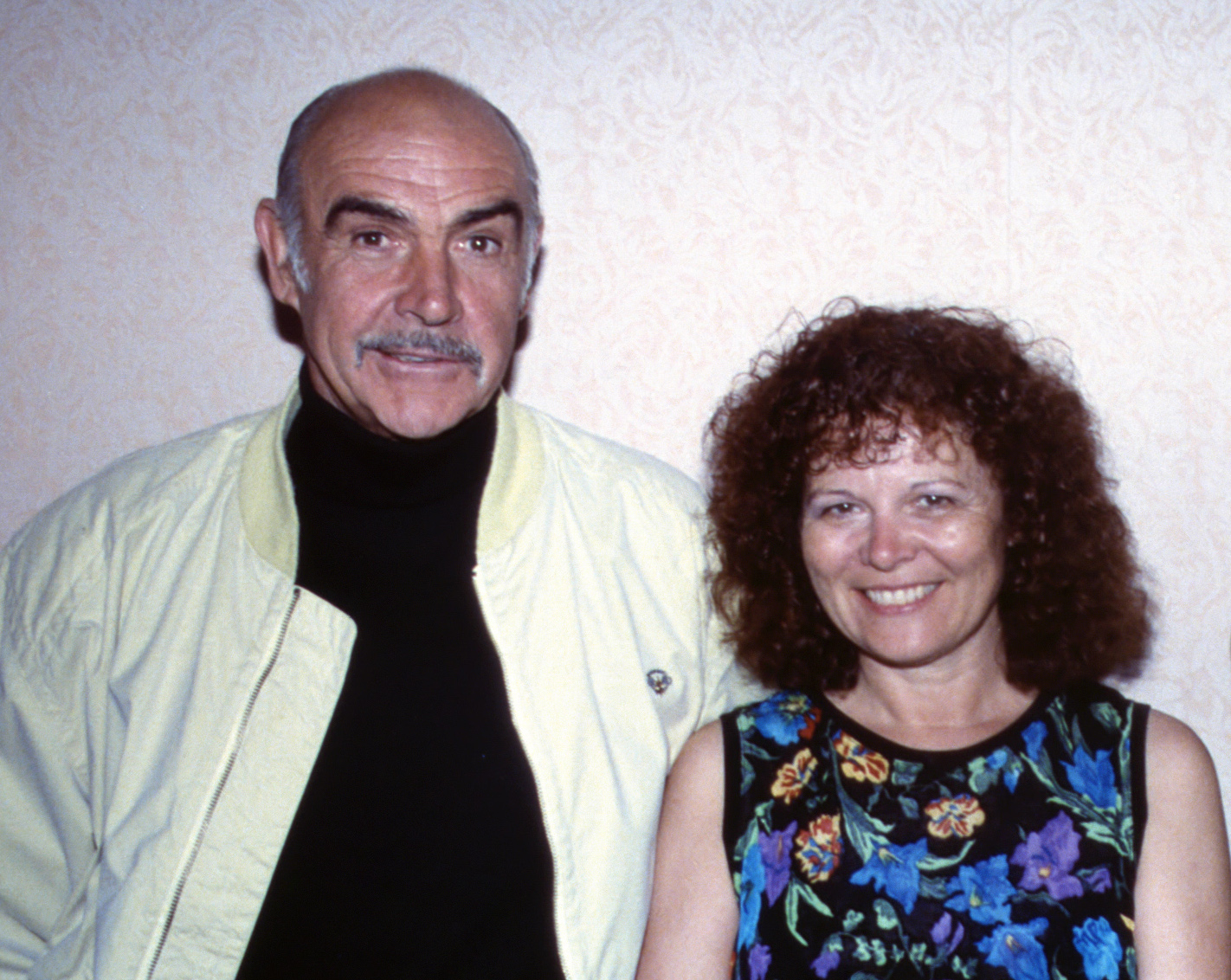
Elisa Leonelli with Sean Connery. 1996
In 1992 I had the pleasure of spending one hour with Sean Connery, interviewing him about Medecine Man. I wrote an article for the Italian film magazine CIAK, as their Los Angeles correspondent from 1987 to 1994.
I wrote about movies for other Italian magazines: Europeo, Epoca, Marie Claire, Donna Moderna, Gioia, Glamour, Myself, also for publications in Germany, Japan, Russia, Spain, UK. I served as Film Editor for VENICE, the Los Angeles Arts and Entertainment magazine, from 1990 to 1999. I wrote career interviews for the Spanish film monthly Cinemania from 1996 to 2006. I am the Los Angeles Correspondent for the Italian magazine Best Movie from 2005 to the present. I wrote a critical essay, Robert Redford and the American West.
I enjoy meeting actors and directors that I admire, ask them questions about what ideas they intended to express about our world with their films and their performances.
Recently I digitized some of the audiotapes of my private one-on-one interviews, before donating my entire collection to the Academy Library, and that gave me the idea of selecting a few interesting answers to my questions (1978-2017).
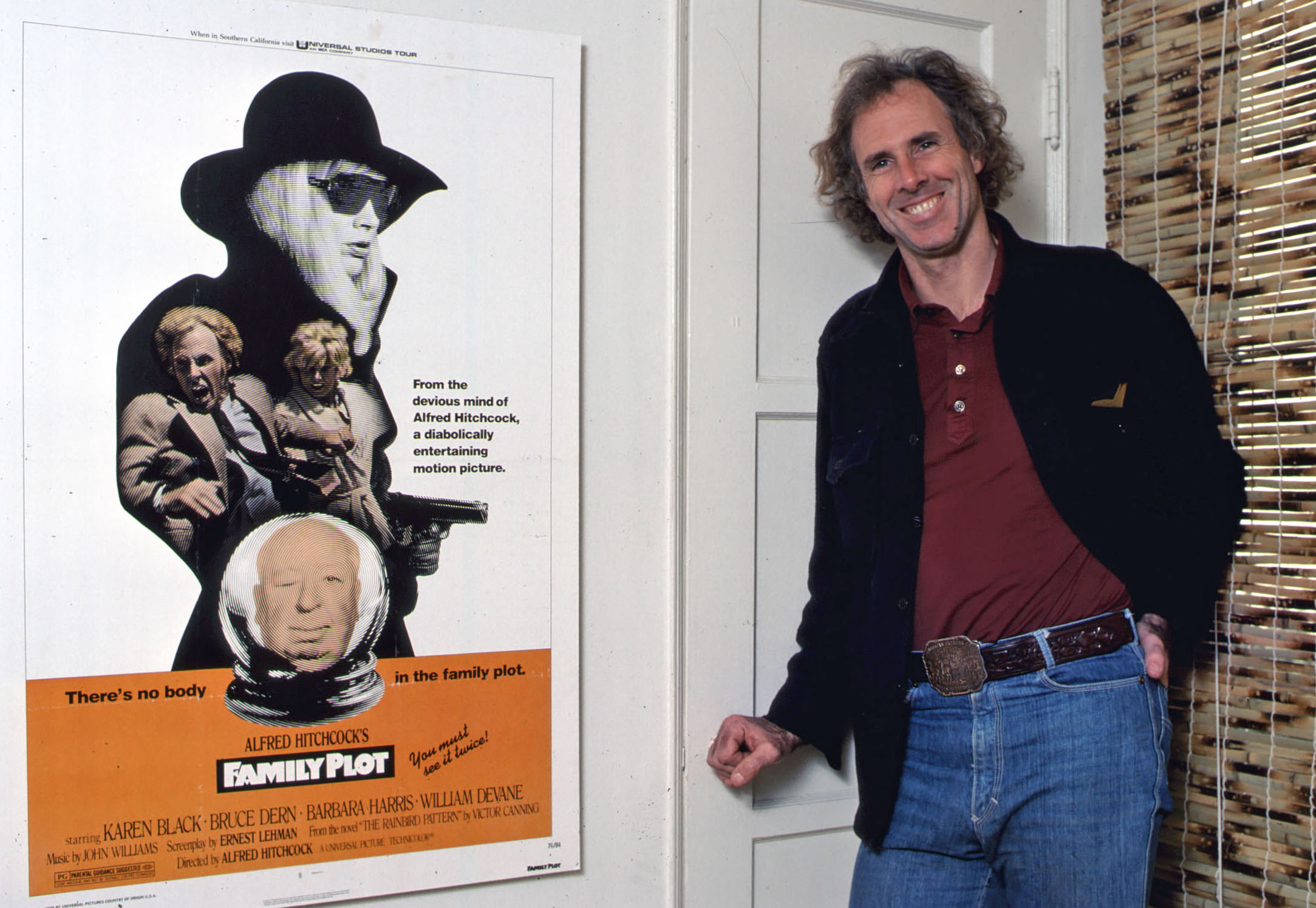
Bruce Dern 1978 (c) Elisa Leonelli
WOODY ALLEN
The first interview Cinemania asked me to write in 1996 was with Woody Allen about Everyone Says I Love You. I sent a version in Italian I had written for Gioia.
“I’ve always been interested in Asian culture, I’m a great devotee of the films by Akira Kurosawa, I love a number of Japanese painters. So my appreciation of things Asian has not changed in any area except on Asian women. I have become obsessively fascinated and riveted by one Asian woman, by the vibrations she gives off, and late in my life I’ve come to appreciate the enormous intense femininity, the loveliness and sexuality of Asian women.”
WARREN BEATTY
I had a one-on-one interview with the film star and director in Beverly Hills about Dick Tracy in 1990. It was published in Marie Claire.
“I never really thought that I would become an actor; I wanted to direct, I wanted to write; I went to school to study law, I was interested in politics, and I gradually succumbed to the theatre; but I never made the conscious decision to be an actor, it was just something that seemed to happen. Both my mother and my mother’s mother taught acting, so that influenced me. My sister Shirley was a dancer, then she became an actress, and that certainly didn’t go unnoticed.”
JACQUELINE BISSET
We had a one-on-one interview about Dangerous Beauty, published in Venice in 1998.
“I love Jeanne Moreau, I was stunned by her work for years, I loved to sit for a few hours with her and just watch her. I found Frank Sinatra very interesting, he was the biggest legend I ever worked with. Anthony Quinn was great fun to work with, he’s such a big, masculine sort of a man. I also liked Jean Luis Trintignant very much, he’s a fabulously charming man, full of wry wit and a slightly negative point of view, but very amusing. I did a, Italian movie with him called La donna della domenica (1975) directed by Luigi Comencini with Marcello Mastroianni.”
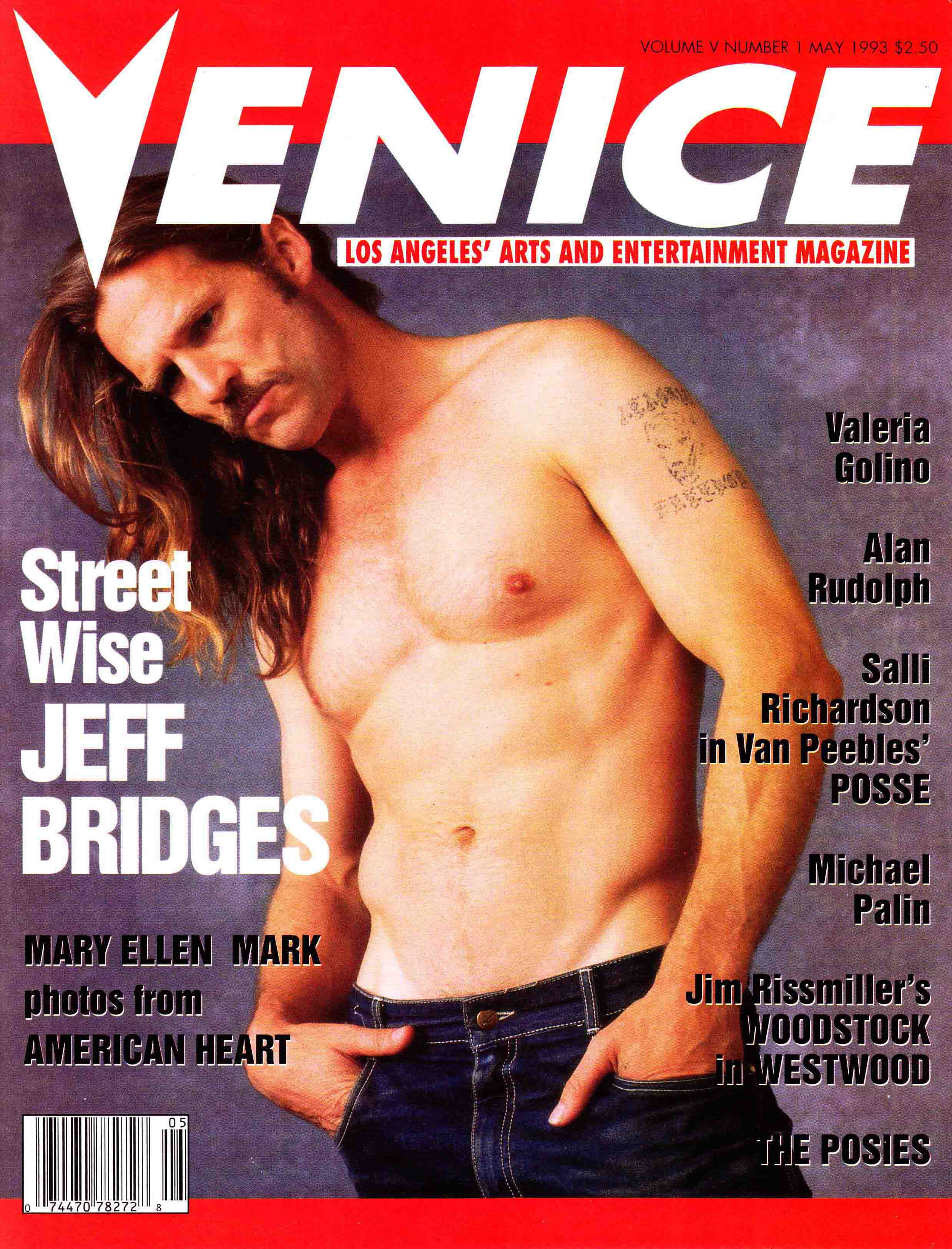 JEFF BRIDGES
JEFF BRIDGES
I spoke with Jeff in his home, when he lived in Santa Monica, for a 1993 Venice cover story about American Heart. The photos are by Mary Ellen Mark, a photo-journalist who served as inspiration for my work.
“Hopefully the United Nations could actually be a world government and function that way. Nobody wants to lose their sovereignty, and one big military looking over the whole world is a frightening thought, but there are certain issues, like the environment and hunger, that concern the entire world. If we had some sort of world government, it could handle things like feeding people, because we know all the ways to end hunger, we just haven’t done it; it could deal with dictatorships and wars, madmen who go off with nuclear arms, so it’s not just one country going after another country, but it’s the whole world concerned about what’s going on.”
SEAN CONNERY
I met him many times, my first interview was published in Elle in 1988, but spending one hour alone with him in 1992 was special. He’s a proud Scotsman.
“I founded a trust in 1988 for education; it’s really to support and encourage anyone who has any particular talent for anything in Scotland. The Freedom of Edinburgh has been going on for 500 years and the field is an extraordinary mixture of admirals and scientists: Queen Victoria, Dwight Eisenhower, Giuseppe Garibaldi, Franklin Delano Roosevelt, Alexander Graham Bell; so I felt in very exalted company.”
BRUCE DERN
I interviewed him and photographed him in his Beverly Hills home-office in 1978.
“I started being very influenced by Jimmy Dean. So I quit college and became an actor. Artists aren’t legitimate to my family unless they are Picasso. When I pick people in my lifetime that have impressed me by their classiness, they are never actors. In 1960 there was an Italian named Livio Berruti, who won the gold medal at the Rome Olympics, he wore dark sunglasses and I thought he was really great.”
CATHERINE DENEUVE
We met at the Sunset Marquis hotel in 1996 for a Venice article. Like Claudia Cardinale, she was an actress we loved as teenagers growing up in Italy in the 1960s.
“I grew up Catholic and I was educated in a school with nuns, but I’m not now, and I didn’t baptize my children. It’s horrible what the church says about homosexuality; look at what the Pope has been saying about AIDS for a long time. I’m very much against that; I think he’s very much responsible for a lot of the negative attitude towards people who have AIDS. I mean, to still consider that you can only make love to have children, that’s really exaggerated.”
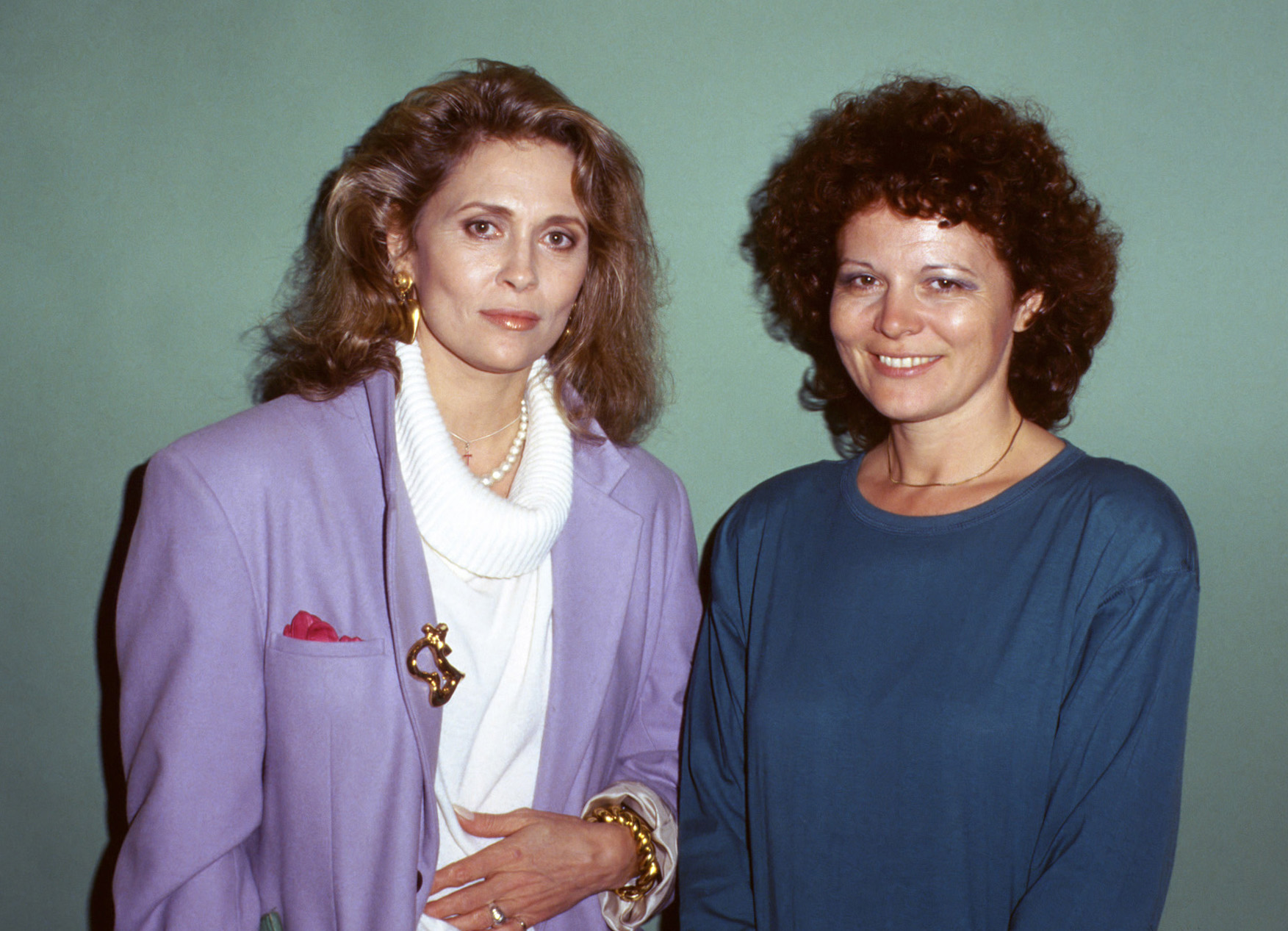
Faye Dunaway 1987
FAYE DUNAWAY
I spoke with her at her house in Beverly Hills, for a 1997 Venice cover story, when she played Maria Callas on stage in the play Master Class by Terrence McNally. The photography was by Cesare Bonazza.
“Any relationship is very difficult, because of many issues. I know I am a control freak, but I’m into making sure that the details are right, because it’s my life, so I have to worry about it. But when you are that way, when you’re used to having a mastery of your own life, then you think you can do it with other people; but you can’t, and you have to step back.”
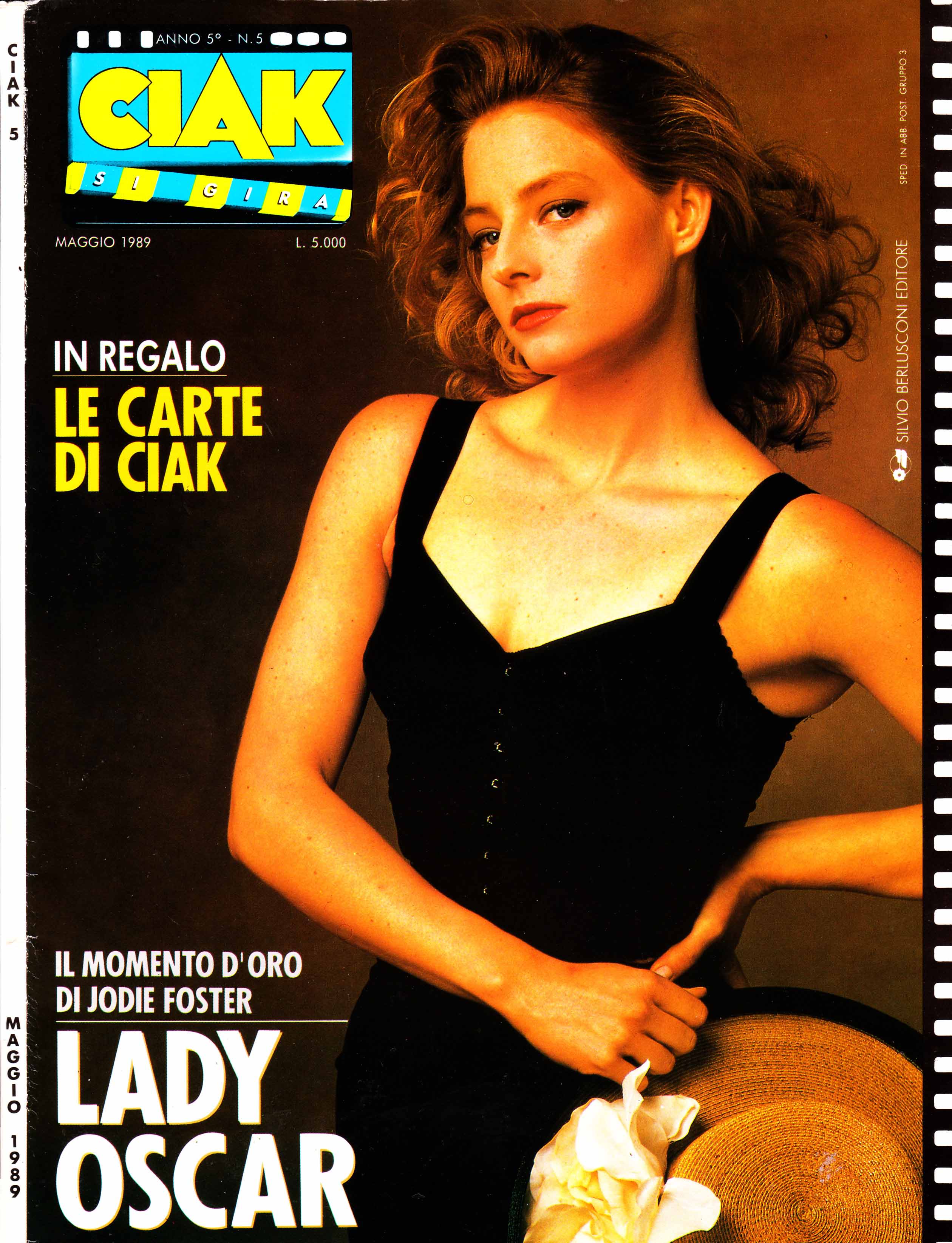 JODIE FOSTER
JODIE FOSTER
When she won a Best Actress Oscar for The Accused, CIAK published my interview as a cover story.
“I don’t know what the statistics are about rape, if they’re actually increasing or just more get reported, but the foremost thing about rape is that it’s a crime of anger and incredible violence, it’s about stripping another person of their will. It’s very important to know that rapists don’t believe they’re raping, they think it’s just a date; the do not identify the act with any kind of wrongdoing. Just like the Ku Klux Klan doesn’t recognize the killing of innocent people as actual killing, because they are not people, in the same way a woman has no will, so it’s okay to violate her. I’m equating those two things, because the idea of domination is that the same rights that apply to you don’t apply to them. It’s very frightening that women cannot feel safe and have to protect themselves.”
JOHN FRANKENHEIMER
I had a private interview at his home in 1991 about Year of the Gun, published in Venice.
“When I lived in France I never went to the supermarket, I would go to the small little stores to buy my food, and that’s how I really learned to love to cook; I loved my life there, as I love my life here. I’ve always known it, but I realized that to surround myself with beauty was very important for me, as to live my life in a tranquil way and to be able to put things into categories, my marriage, my career and my friends. Living in a really ancient city like Paris and during the time I spent in Rome, I realized that life is very short; you don’t get much of a sense of history in Los Angeles, but you do when you’re there and you’re constantly surrounded by it. You look around you and you see things that are hundreds of years old, so you learn to live more in the moment in Europe, rather than always living in the past or in the future, which we tend to do here. You live your life differently in cities like Paris and Rome than you do in Los Angeles or New York; the way people greet each other, the way they talk to each other, the way they spend time eating, the way they think about other things besides work. They have more fun, they take things less seriously; so by living in Europe I learned to enjoy myself a lot more.”
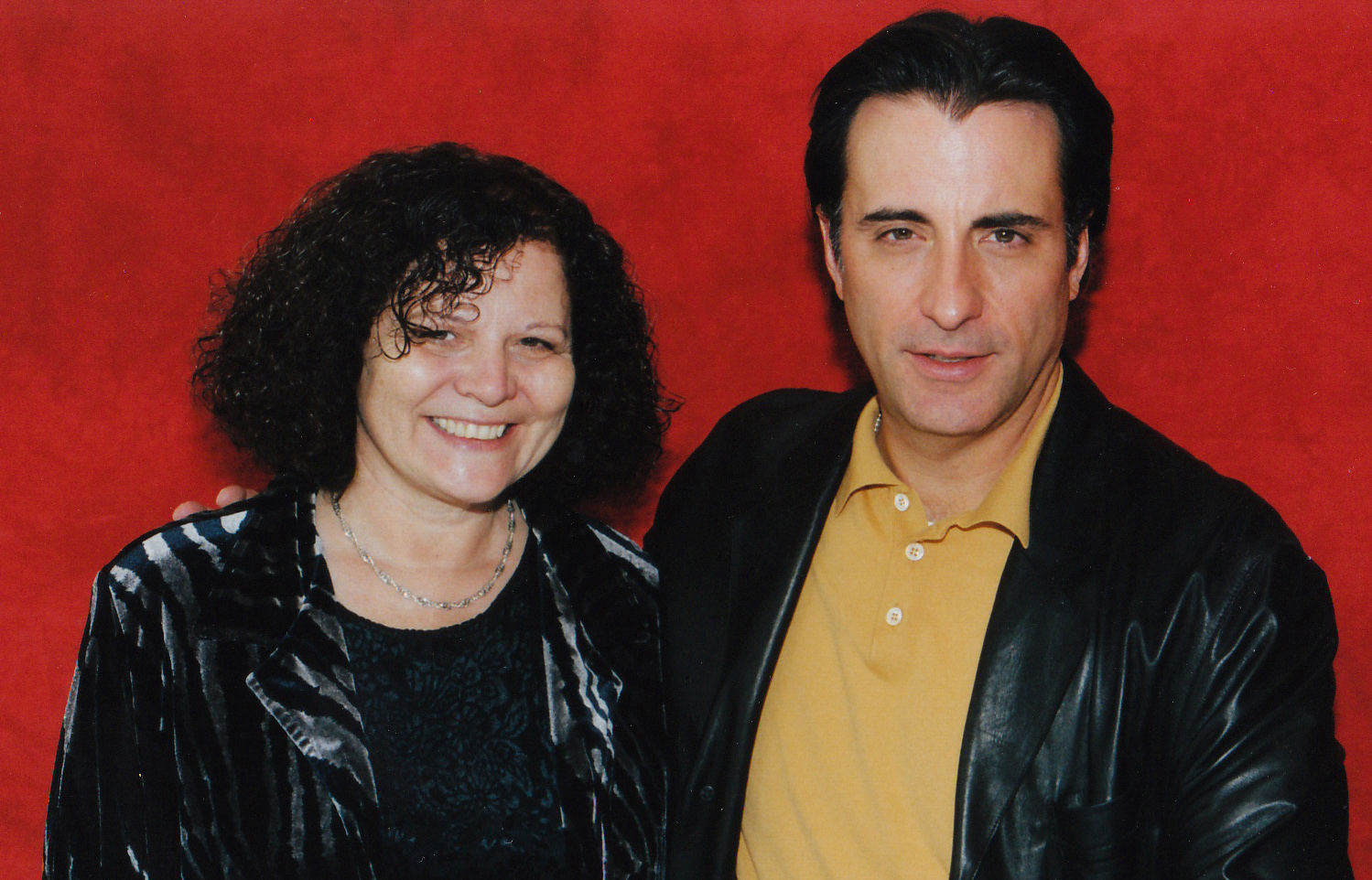
Andy Garcia 2001
ANDY GARCIA
I met him several times, in 1997 for Night Falls in Manhattan directed by Sydney Lumet, my interview was published in Donna Moderna.
“I’m surrounded by women in my household, including the cats and the dogs, so I’m the only male in the family. I feel really blessed for that sort of surrounding, I have no complaints whatsoever, and I learned a lot from my children; they taught me how to be with them and be part of them, as opposed to be looking at me as someone who represents the opposite sex, aside from being a father. But there are no barriers in terms of sexuality, or male or female, in our household with my daughters. I never think of it that way, because I’ve been around for their upbringing.”
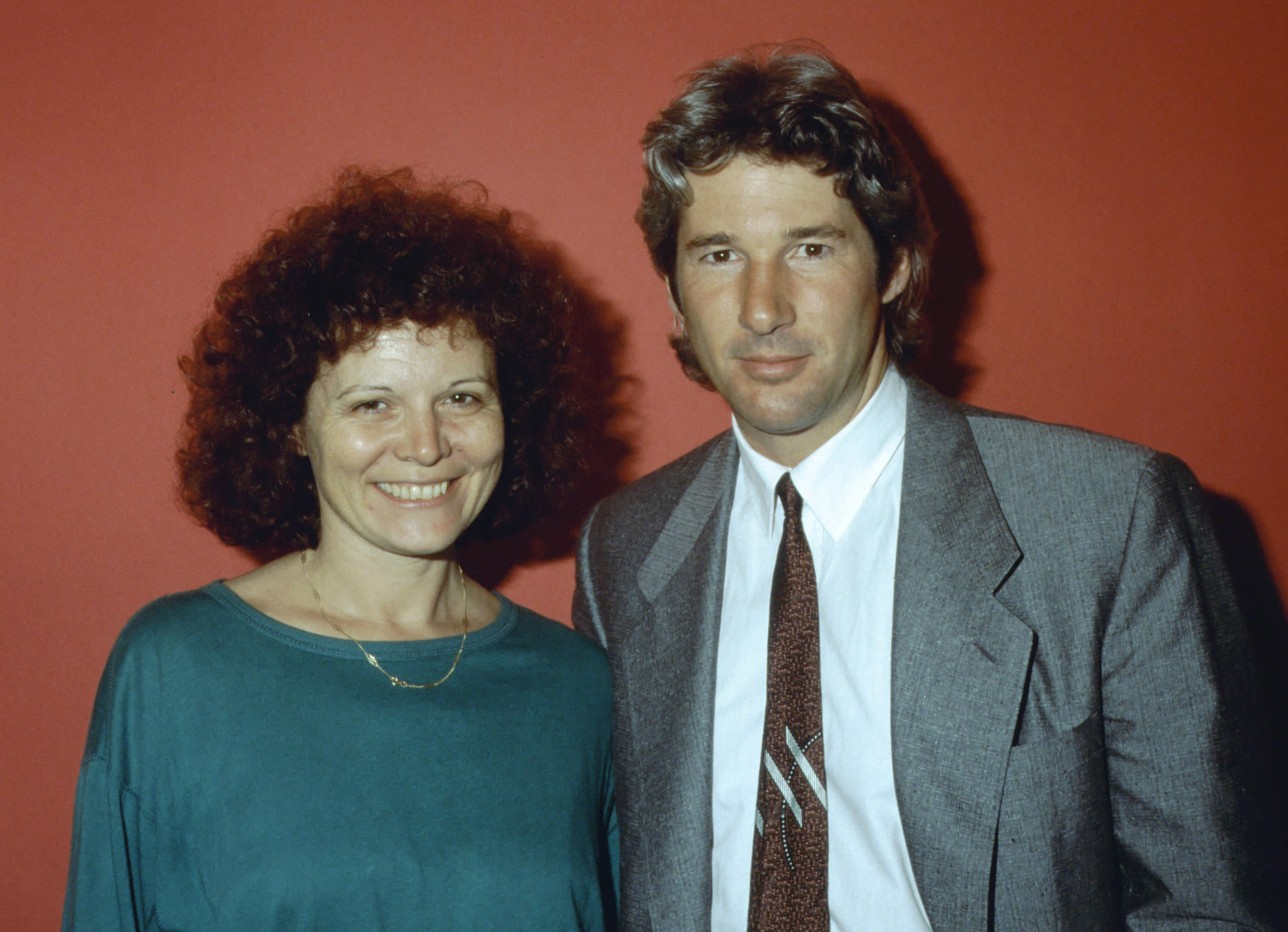
Richard Gere 1988
RICHARD GERE
We had a one-on-one in Beverly Hills about First Knight for a 1995 Venice cover story, and since then, every time we meet again, he always remembers me.
“I’ve had a lot of teachers; it’s through the teacher that we gain everything we’re looking for. The teachers in my lineage go back to the historical Buddha, they’re part of the same mind consciousness, and they pass their knowledge, by mind transference, from teacher to student, right down to the present. So, when you encounter your teacher, you’re really encountering a Buddha; when you’re given such an opportunity, you have a relationship of respect, joy and thankfulness with a teacher.”
MEL GIBSON
I did a one-on-one interview with him in Vancouver for Lethal Weapon 2, that was published in Epoca. I met him many more times through the years.
“I have a perverse sense of humor, I laugh at strange things, I’m a little sneaky like that, I like to get a reaction out of people. I always thought it was a very Irish thing to do, the Irish like to fool with the English language, as a mark of rebellion. When you read people like James Joyce or Samuel Beckett, they do it too. I was doing it since I was a kid, both my mother and my father come from Irish stock, so I guess it’s a trait of that nationality. I love Groucho Marx too, he said some things I thought were funny, a lot of innuendos.”
JEFF GOLDBLUM
We had a private interview about Independence Day for a 1996 Venice cover story.
“I got this science thing from my father, who was a doctor of internal medicine, so he was a kind of scientist and he always prided himself on staying up on the science. He thought of himself as very smart and seemed always happy to answer any science question we asked, he was delighted. So my father was a nice thinker and talker about scientific things, and he was my hero early on, as well as my mom, I idolized him; and I was kind of a mimic, so I imitated the way he wrote, his penmanship, and everything he did, unconsciously.”
RANDA HAINES
We met in 1993 in her office at 20th Century Fox to talk about Wrestling Ernest Hemingway, the interview was published in Venice.
“In America we’re conditioned to think of old age as a horrible and sad time, our society wants retired people to disappear and not be a bother, so we send them away somewhere, like in those Florida ghettos. But I was there and I didn’t find that area depressing at all, I saw plenty of older people really enjoying themselves; they may be retired but they have found something to do that keeps them interested, alive and happy. I’m not denying that it isn’t sad to think about our own mortality and aging, but the fact is that, the way we’ve lived our life as young people, is how we’ll live as older persons. Older people are still vital and sexual, they have the same needs and vibrancy as anybody else. There isn’t a date you pass, on your 65th birthday or whatever, after which you’re finished, your life is set in stone and can’t change. The hopeful message of the film is that it’s never too late to make a friend, to have some profound life-changing experience, to grow. Life never ends, it’s not over until is over.”
DUSTIN HOFFMAN
I met him lots of times, the last time was in October 2017 for The Meyerowitz Stories, with my colleagues of the Hollywood Foreign Press.
“I do have a lot of kids; in my first marriage we raised two kids, and in this marriage now my wife had four children in ten years; and we have three grandchildren. But I wish I could do it again, because I wasn’t aware of so many things as I am now, of how perceptive the human being is from very early on, how curious and how adventurous. At a certain point, that is discouraged and they are supposed to be like everyone else; if they are not, the other kids tease them. So we should allow kids to keep an individuality, teach them that no one like you has ever been born, and no one like you will ever be born after you, that the mystery of life is unique to every single person. And yet we tamper with it, while the trick is not to. So I think I could do it better, if I did it again.”
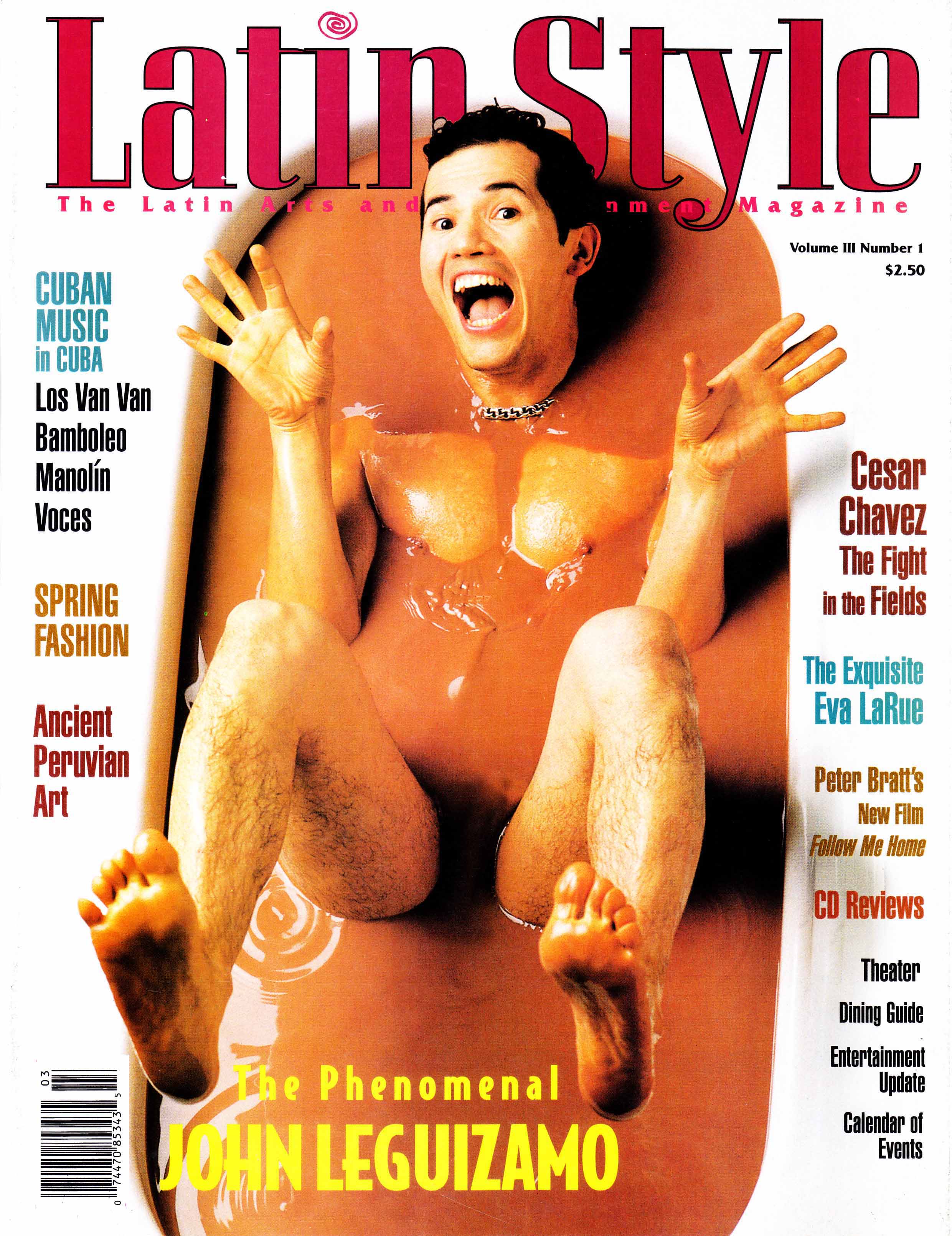 JOHN LEGUIZAMO
JOHN LEGUIZAMO
We spoke at Blake Little’s photography studio for a Latin Style cover story. He was so game that he agreed to pose in a bathtub full of melted chocolate.
“This country’s problem is that the education system is so horrible, because they don’t care; but this is your future people, this is what is going to uplift the country. You don’t know where genius comes from, it doesn’t always come from the wealthy classes, it comes from all different places; and to not support it, is such short-sightedness. I mean, for Americans to say that Latin people are illegal aliens is so wrong, because Americans are really the illegal aliens that came here, killed all the Indians and created all kinds of plans for genocides. Texas was Mexican and they came in there and overran it; they did the same thing in California. So who does America really belong too? It’s whoever has the most gunpowder, I guess.”
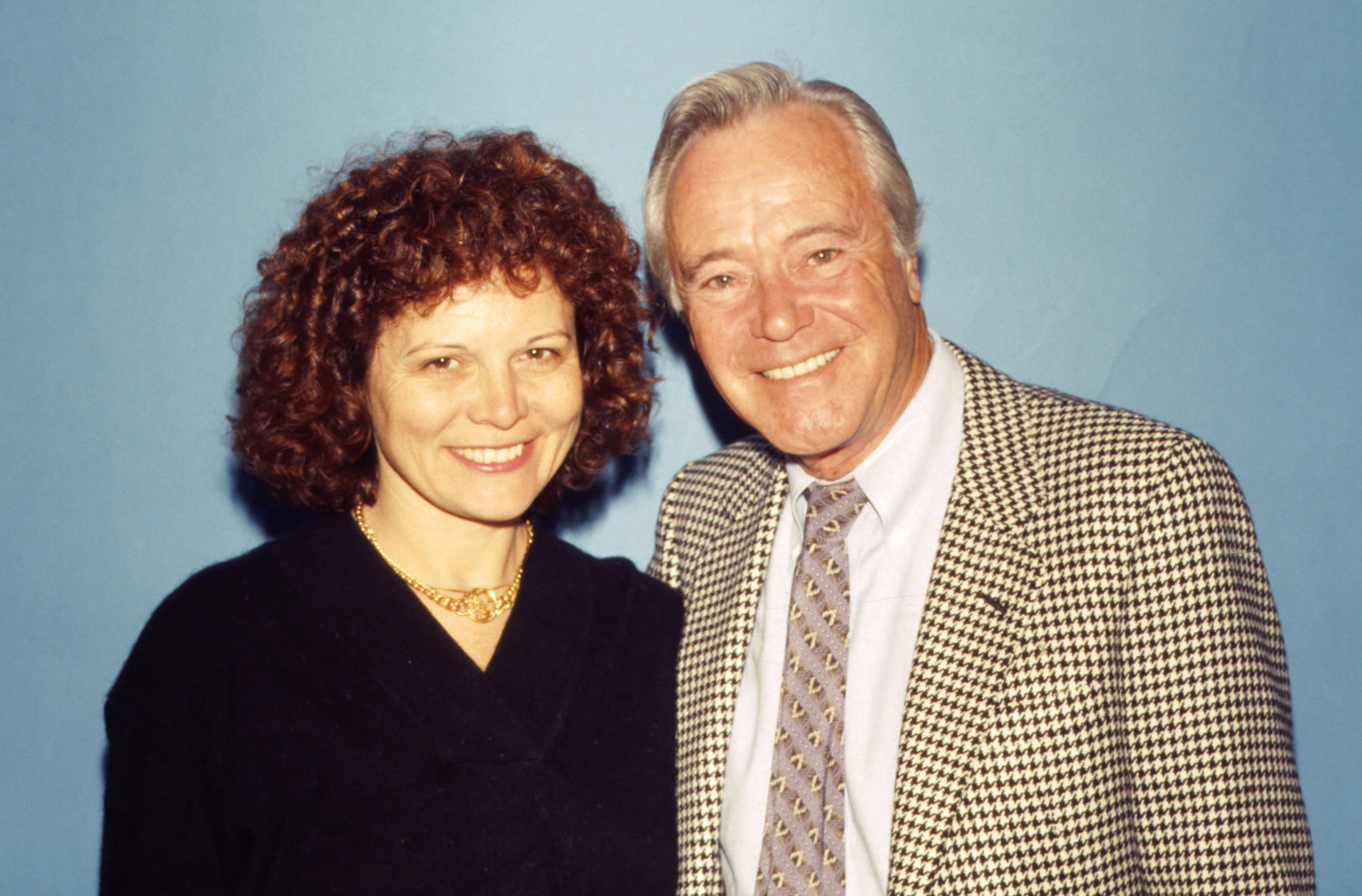
Jack Lemmon 1988
JACK LEMMON
I interviewed him many times, in 1995 for Grumpier Old Men. This is what he said about his friend and costar Walter Matthau.
“I think we’re both on the same wavelength and there’s obviously a good chemistry there when we work together. There are qualities that Walter has that I enjoy immensely. He’s very bright and very knowledgeable, certainly about his craft, so it makes it a joy to work with him, but also I love his sense of humor. He cracks me up all day long, everything that Walter does strikes me funny. He’s also a very good friend, and he’s a good person to have as a friend.”
SYDNEY LUMET
I met him in 1997 for Night Falls in Manhattan.
“There’s so much madness going on that I find myself almost reduced to inaction because I don’t know where to begin. Whether it’s domestic or international, the accumulation of human violation is so enormous now. We are becoming like Yugoslavia here, not territorially, but certainly ethnically and economically, we’re splitting apart. The intolerance, not on a racial level, but just in terms of the way we talk to each other, is the most threatening thing to our existence. The intolerance of ‘let’s put up this rehab center, one of the midway points for dope people,’ and the reaction is what’s become the American cliché NIMBY, not in my backyard.”
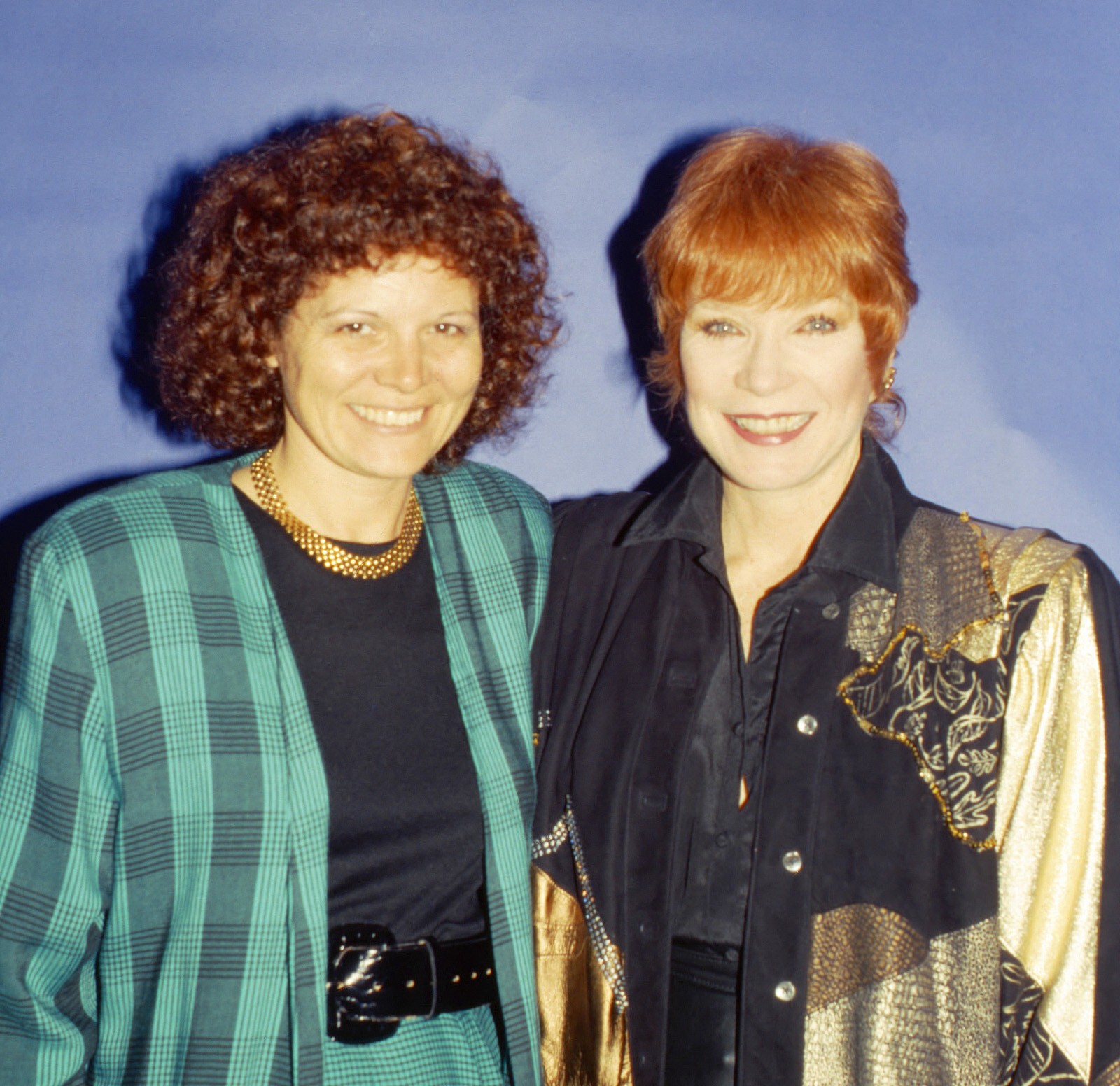
Shirley MacLaine 1988
SHIRLEY MacLAINE
I interviewed her many times, when I met her for Used People by Beeban Kidron with Marcello Mastroianni in 1992, my interview was published in Venice.
“I don’t know that I escaped being a housewife, because, being a mother, you’re a housewife by definition; so, even though you have some help, there’s not enough time to do everything. Communication between parents and children, and mothers and daughters in particular, is not that great. My own daughter has slowly gone her way to do different things, as I went my own way; it took me a long time, but I finally got to the point where I could say to her: ‘I honor the fact that you’ve got problems, but really they’re not mine, and I can’t solve them.’ My mother never got to that point with me, she was always trying to be this wonderful good mother; but the truth is that we’re people too and maybe we should change our expectations of ourselves. What happens to you may be your parents’ fault, but that doesn’t mean that you should visit your problems on them; you’d better take responsibility for your own life.”
PAUL MAZURSKY
We met in his office at 20th Century Fox to talk about The Pickle in 1993. The interview was published in Venice.
“Federico Fellini is one of the most important figures of the 20th century, it seems to me, because he revealed a vision of life that, whether you came from Brooklyn New York, Tokyo, Germany, South Africa, or any place in this world, spoke to everybody in his own language and it became a word, ‘felliniesque.’ I was always profoundly moved by his movies, laughed and had a wonderful time seeing them; and it’s the same thing being with him, he’s a really good friend of mine and he’s amazing.”
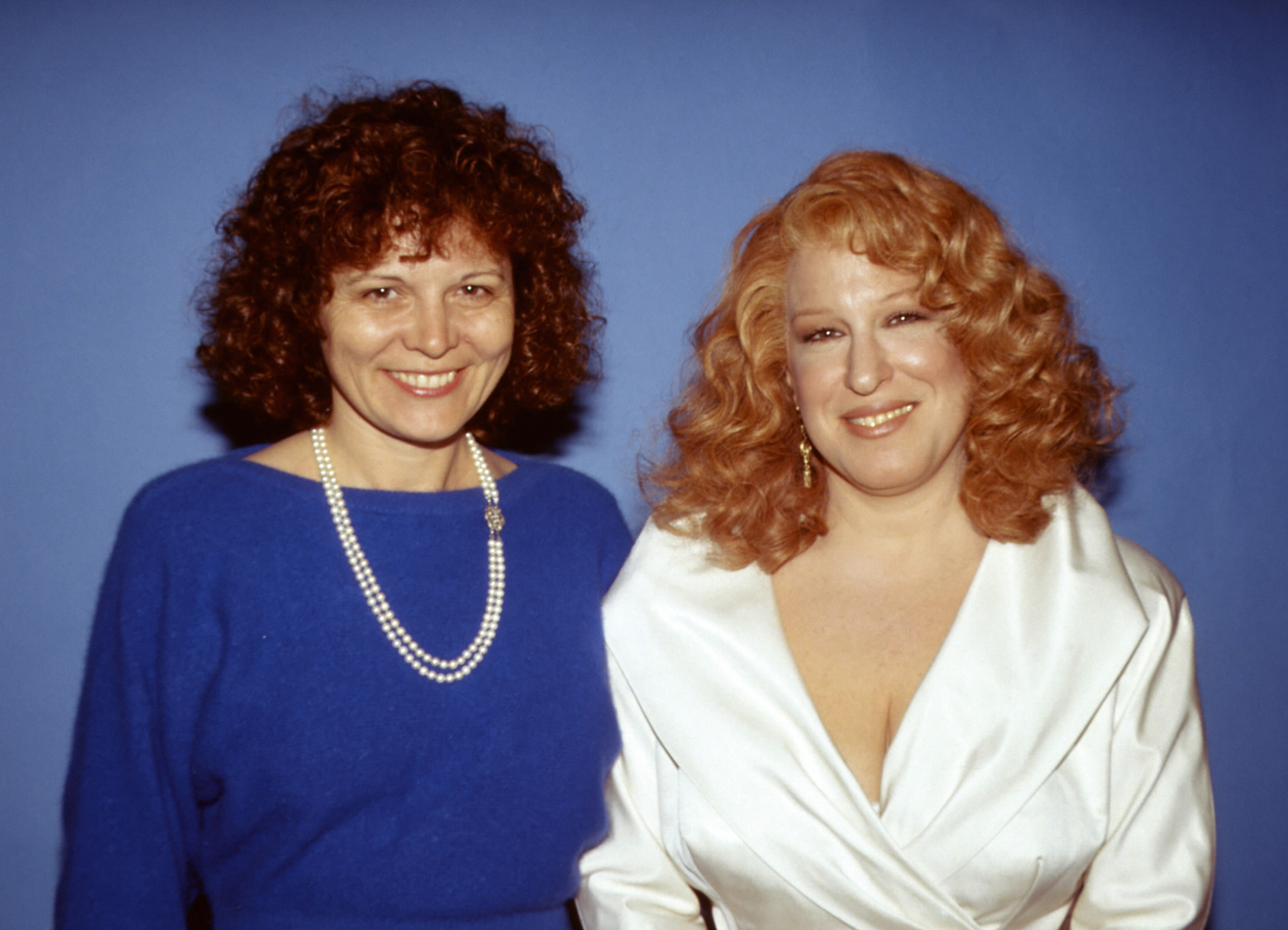
Bette Midler 1988
BETTE MIDLER
We had one-on-one interviews for Stella in 1990, published in CIAK, and For the Boys in 1991. I loved her 2008 Las Vegas show, The Showgirl Must Go On.
“I was interested in the fact that women provide the soldiers who go to war, but nobody ever asks them if they want to send their kids to war; they’re the ones who had them, brought them up, paid attention to them, then they’re asked to give them up, in the service of what?”
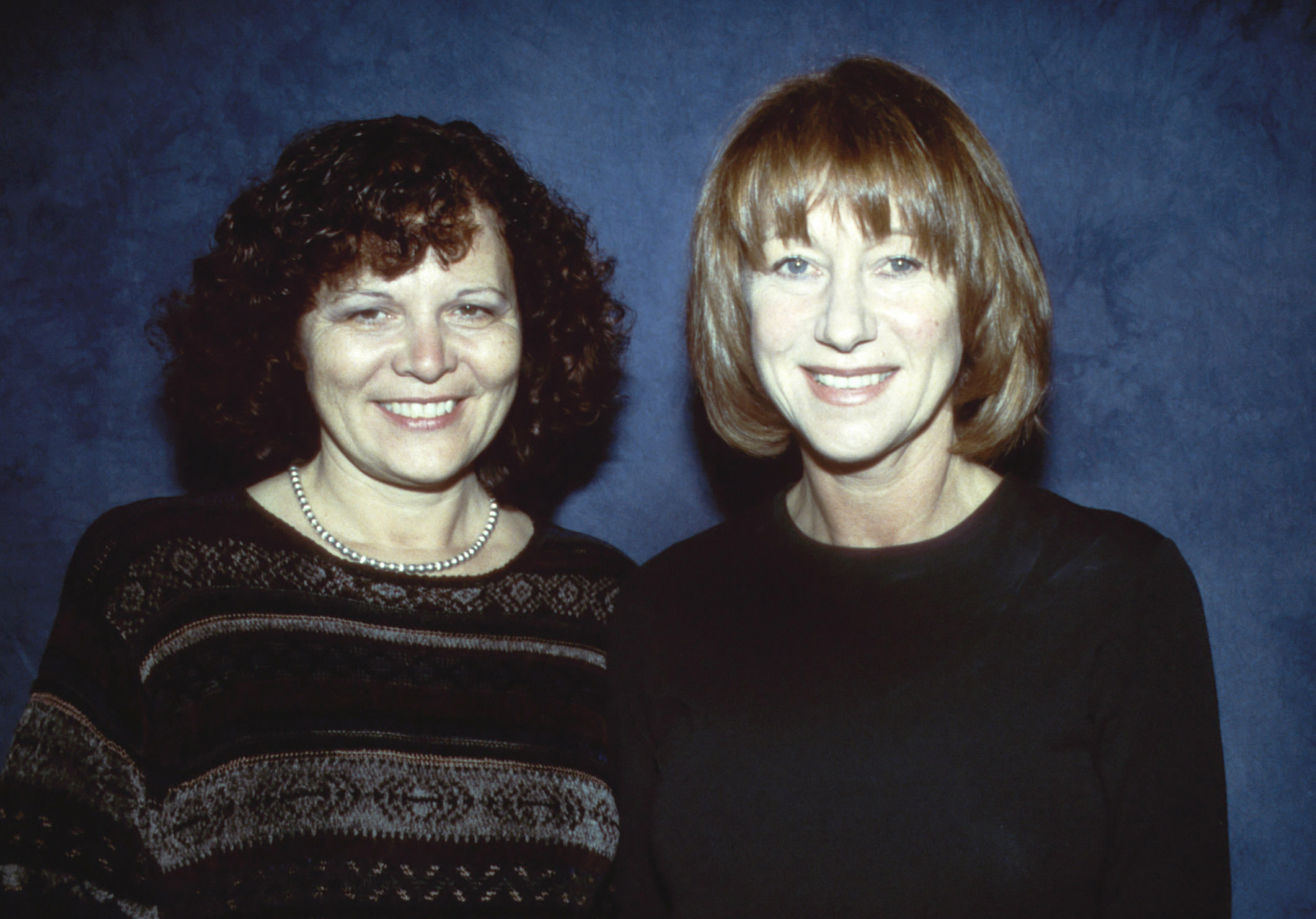
Helen Mirren 1996
HELEN MIRREN
I spoke with her many times through the years. I had a one-on-one with her for Some Mother’s Son in 1997, wrote an interview for Venice.
“Although I have all the insecurity and passions of an artist, I do have ultimately a sense of balance; and I definitely got my sense of equanimity from coming from a very close and loving family. As I get older, I realize more and more how important it is for children to be loved, and how the love that you have had as a child carries you through life. It’s like money in the bank, and you can see the devastating destruction that happens to people’s personalities, who have not experienced love as a child.”
SAM NEILL
I had two one-on-one interviews with him, in 1995, I wrote it for Marie Claire, and another in 2001 about Jurassic Park.
“My father was a New Zealander. Originally he was Irish, but many generations ago. My mother is Anglo-Irish. For me it was a shock initially to leave Northern Ireland, but after a while I was actually thrilled to grow up in New Zealand, it’s a wonderful place for children. My parents, however, lived it with a certain kind of stoicism; they were of a generation that always had a feeling of somehow being in exile, that you weren’t in London, or hunting in Surrey or whatever people were doing in Britain. In 1978 I was asked to go to Australia to do Gilliam Armstrong’s My Brilliant Career, which was a success; I enjoyed being in Australia very much and I decided to stay on there.” 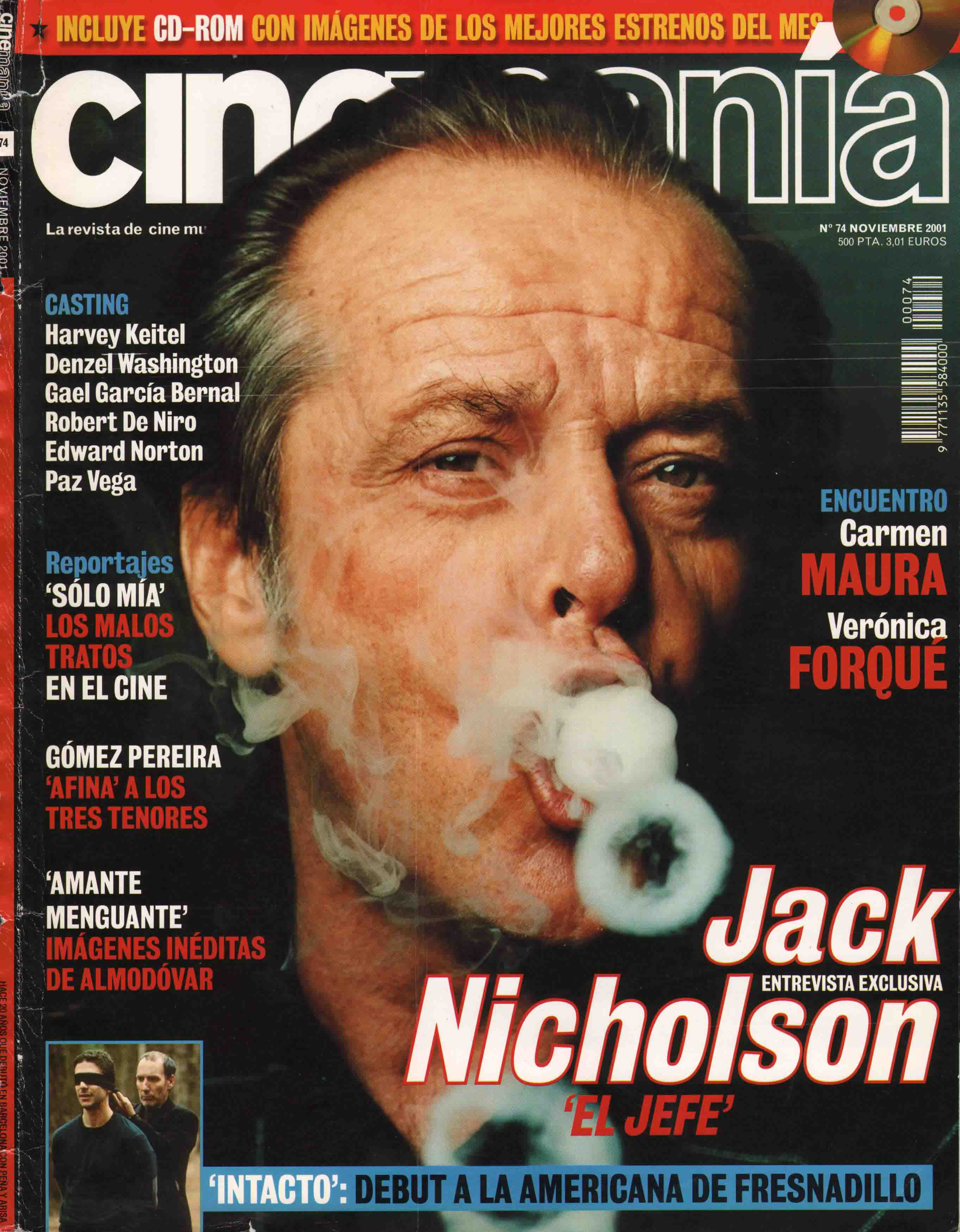 JACK NICHOLSON
JACK NICHOLSON
I interviewed him for As Good As It Gets by James Brooks in 1997, and many other times. In 2001 Cinemania published a career interview I wrote as a cover story.
“I’ve always felt that my own particular upbringing was ideal, in the sense that I had a strong male figure around the house, my grandfather, as my grandmother/mother supported my sister/aunt and her husband a lot of the time, and they lived in the house with my mother/sister and I. So I had this guy, who is still my hero, as a male role model, and yet I didn’t have anybody who was competitive with me, which is a classic Oedipal thing; so I had a lot of freedom as a result. My mother and sisters had to instill honesty in me and then trust that I was telling the truth, but I had very few restriction placed on me from about ten years old on; so it worked great for me.”
GWYNETH PALTROW
We had a one-on-one in 1999 about The Talented Mr Ripley for the UK magazine Looks. I met her many other times.
“When you go to Europe, the class distinctions are very palpable, and what you realize is that, coming from America, we think we don’t have a class system, but actually we do; it’s not really discussed here, but it definitely exists. And especially living in New York, you see it all the time, you can tell the difference; and I understand where it comes from, even though I don’t like it. In America we’re such a young country, but in Europe they’ve had hundreds of years of developing cultures and changing class systems, so there it reminds me more of a sense of history, as opposed to elitism. Whereas here all you have to do is make some money and you’re in another class, which is not what it’s about in Europe; there to belong to the upper classes is more about having a sense of a family tradition.”
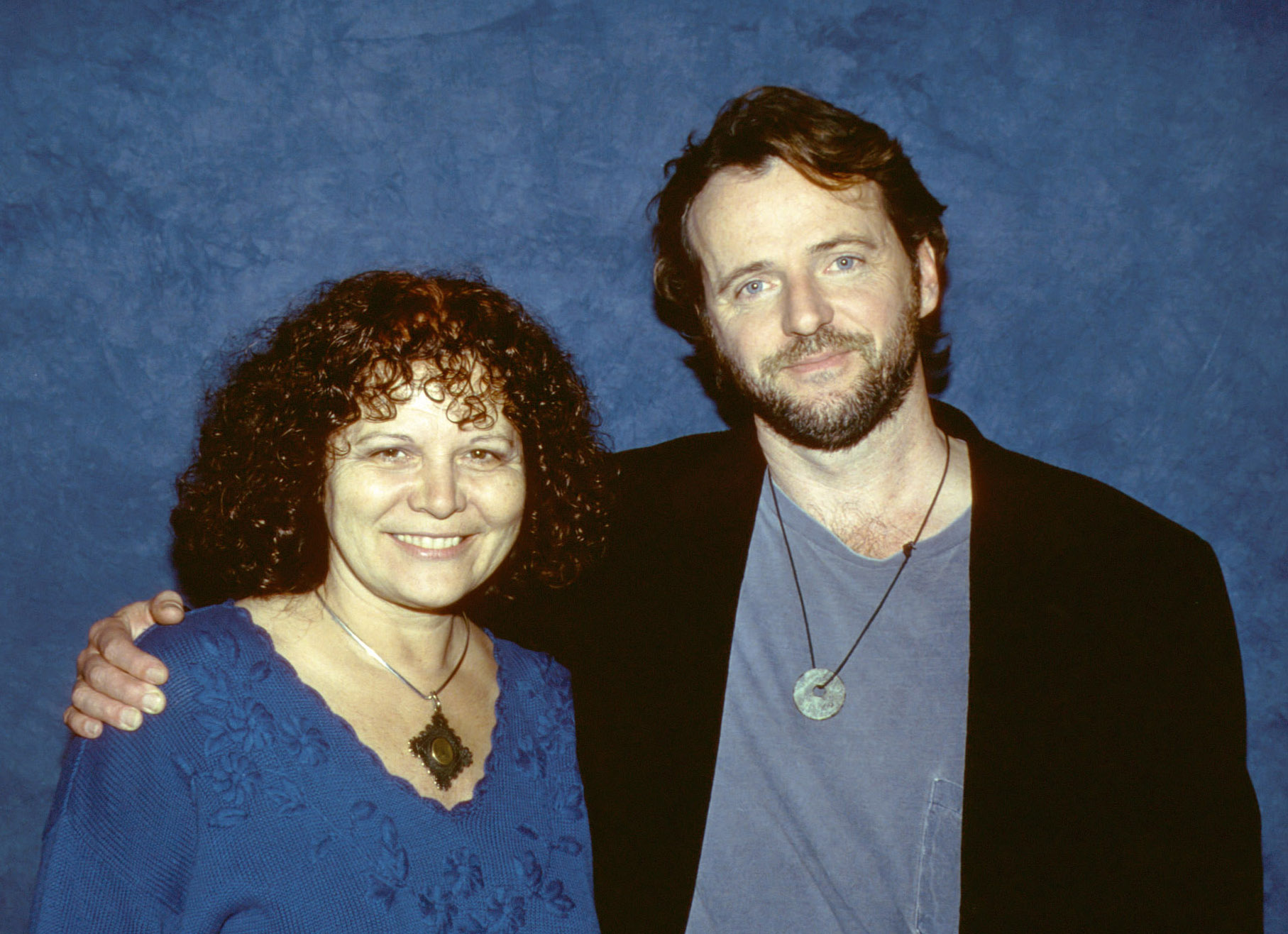
Aidan Quinn 1999
AIDAN QUINN
I did a one-on-one with him about Blink in 1994. We featured him in Venice as a new face along Johnny Depp.
“I had a typical Irish Catholic upbringing, and ‘once a Catholic always a Catholic.’ Those spiritual beliefs and practices and Christ’s message are still very important to me, those things will always remain. You have to separate what is guilt-producing and designed to make you feel like you are a miserable creature and a sinner, from what is good about religion, what makes you extend the blessings that you’ve been given in life and share them with others.”
NATASHA RICHARDSON
We had a private interview with the daughter of Vanessa Redgrave at the home that belonged to her father, Tony Richardson, in West Hollywood. It’s really sad that she died so young.
“Obviously I am a product of my upbringing, which was amazing; what was great for me was that I was always being introduced to different worlds and various kinds of people, I was part of my parents life and I was treated like a person, not like a child, who has to watch TV with the nanny while the adults do other things. So growing up I always found older people much more interesting than children my own age, I didn’t want a bunch of other kids at my birthday parties, because I thought they were boring, I preferred all these interesting grown-ups around. I suppose I was quite precocious, and because my parents worked in films and I was on film sets, I fell in love with that whole world and got passionate about movies. I always wanted to be an actress; when we were kids my sister Joely and I would put on shows, dress up and be gypsies. It was a very special childhood, an interesting mixture; it wasn’t all roses, but whose childhood is?”
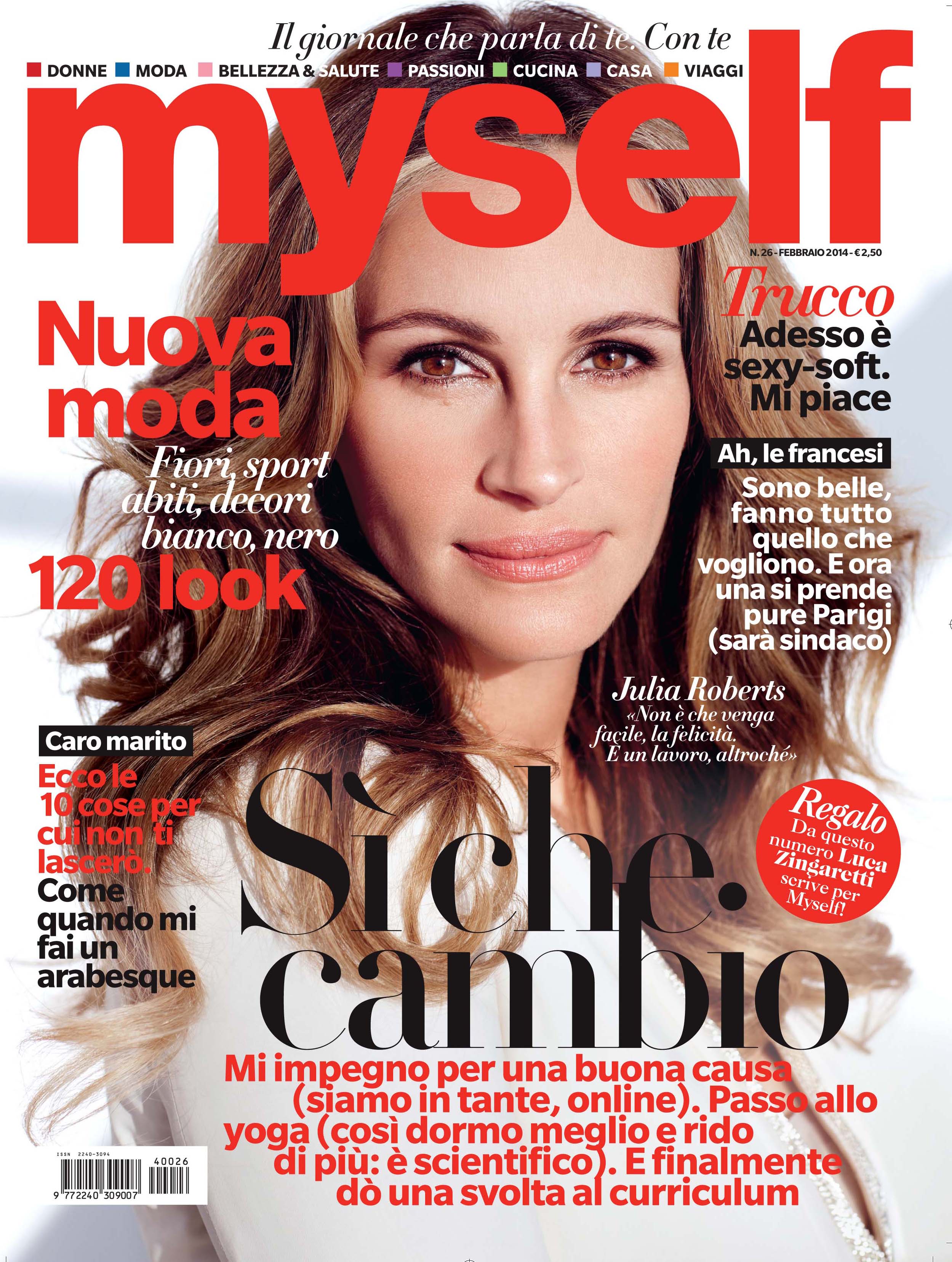 JULIA ROBERTS
JULIA ROBERTS
I first met her for lunch in 1989 on the set of Pretty Woman, and she has been friendly to me ever since. In 2014 Myself published my interview as a cover story.
“My kids do go to school now, and it’s awful, because I miss them for the eight hours they are there; but it’s beautiful to watch them grow up and see the things that they are curious about get bigger and more defined. My husband and I are very hands on with our kids, and it’s fascinating to watch their minds expand. My priorities are the same, just more fine tuned, as one gets older. For me it’s all about my family and participating in my life with my friends and my co-workers in a way that’s really fulfilling to all of us. The one thing that we all know is that there’s not enough time in this life, so it’s about making sure that every day is meaningful in some way.”
GENA ROWLANDS
We met at a restaurant in Santa Monica for a 1996 Venice cover story about her life and the movie Unhook the Stars, directed by her son Nick Cassavetes.
“For women of my generation, the usual pattern was to go to school and then teach for a couple of years, then get married and have your children. And it was not a bad way of life either; most of my girlfriends, that I knew since I was a kid, never have worked, and had a very good life. Now the younger women are almost all working and active, and it’s harder for them, because the struggle between a career and children is always hard; and that’s going to be true at any age, with any generation. And it’s really important for them to know that it’s something that can be dealt with, but not solved, that there’s no perfect solution.”
JOHN SAYLES
We had a on-one-one interview about City of Hope in 1991. I chose to publish in Venice what he said about the Clarence Thomas hearings.
“All of a sudden, the personal becomes political in many people’s heads, and they used to think they could keep it apart. Most men in the Senate would have liked to keep that in the club, you know, ‘sexual harassment, that’s personal stuff, it’s not that important,’ but the women, even the ones who had backed Thomas, were forced to bring that out, against their will, because it was political. So it’s a real classic criss-crossing of loyalties, “Am I a Republican first or a woman first?’ If you are a black woman today, who is pro-choice, you say: ‘What’s the more important thing for us, to get a black member on the Supreme Court, now that Thurgood Marshall is gone, or to get somebody who’s pro-choice, or at least willing to listen to that side?’.”
JOEL SCHUMACHER
We had an interview about The Client in 1994. It was published in CIAK.
“My father died when I was four, we were very poor and my mother was out at work all day, so I definitely had a childhood where I was on my own. When you don’t have a father and your mother works very hard, like mine did, everybody says to you: ‘You have to be the man of the family. Your father’s not here so you have to take care of your mother.’ There’s a good side and a bad side to that; the good side is that you become very independent, because you have to. On the other hand, I’m not so sure it’s the greatest way for a child to grow up, because, in a sense, you don’t have your childhood.”
JAMES STEWART
I met him in 1992 when he was honored at the Palm Springs Film Festival. My interview was published in Marie Claire. He said of Alfred Hitchcock, who directed him in Rope (1948), Rear Window (1954), The Man Who Knew Too Much (1956), Vertigo (1958).
“He was amazing, one of the most important directors of all times. He came to the first day of shooting of a picture completely prepared, in most cases probably 50 to 75% of the writing was his, he had this complete control over the crew and cast, because he knew exactly what he wanted. I looked at his script once and on one page were the words, on the opposite page the visual ideas (he was quite good at pen and drawing), that he wanted to get on the screen. I’d never seen that with any other director I’ve worked with, such a complete preparedness.”
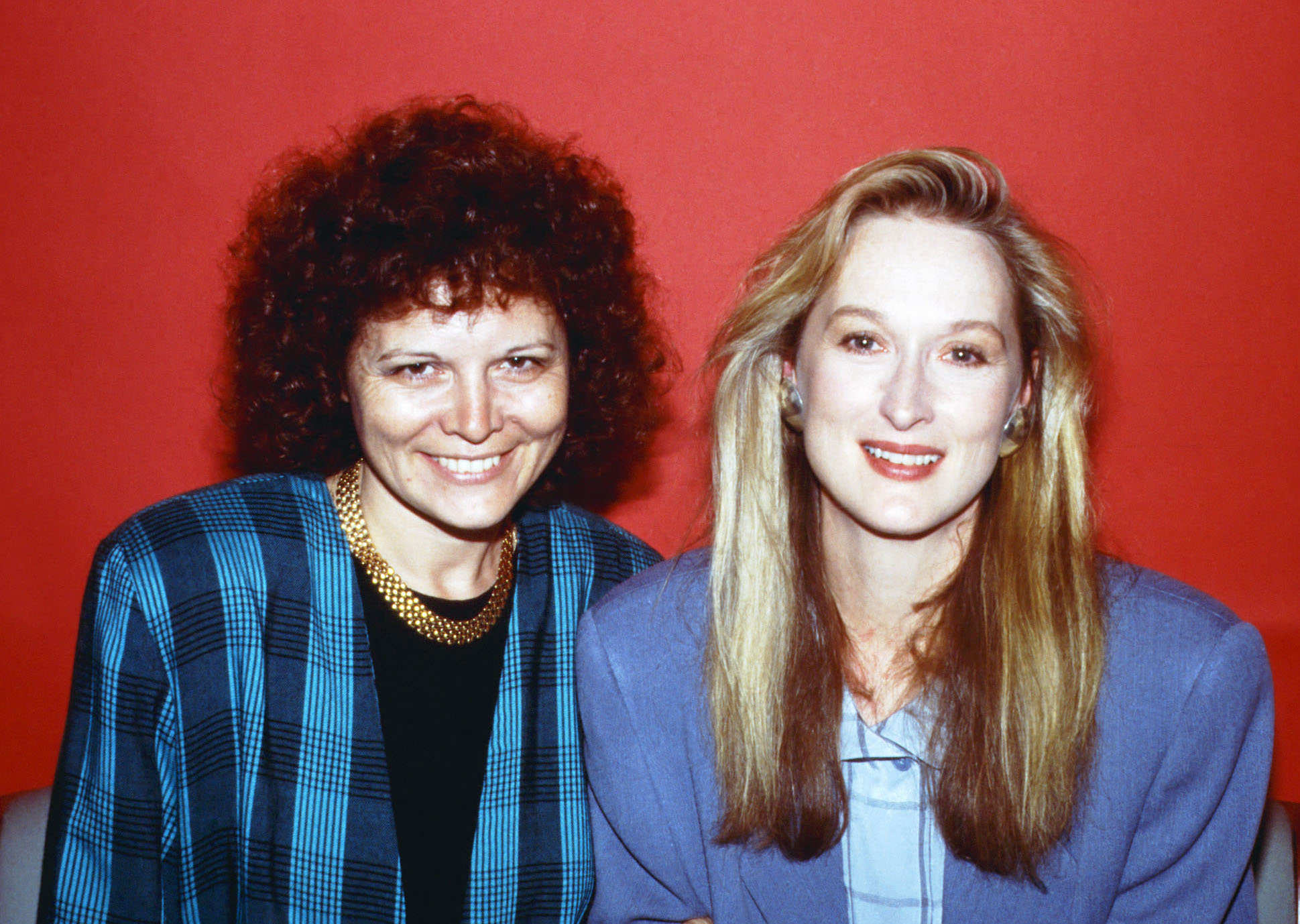
Meryl Streep 1988
MERYL STREEP
I met her in Las Vegas for Postcards from the Edge in 1990, and many more times.
“My images of women on the screen were Katherine Hepburn, Greta Garbo, Carol Lombard, fabulous, luminous, great women, very inspiring. Women in America live unlike any place in the world, while in some countries they’re veiled, which is appalling. In Africa it’s the women who carry water barrels and steel drums on their back for seventy miles, while the men walk alongside. So there’s definitely a disparity. I know we’re in a privileged position here, but we have to go forward, because we’re leading the world, for good or bad, into the next century. We are the models.”
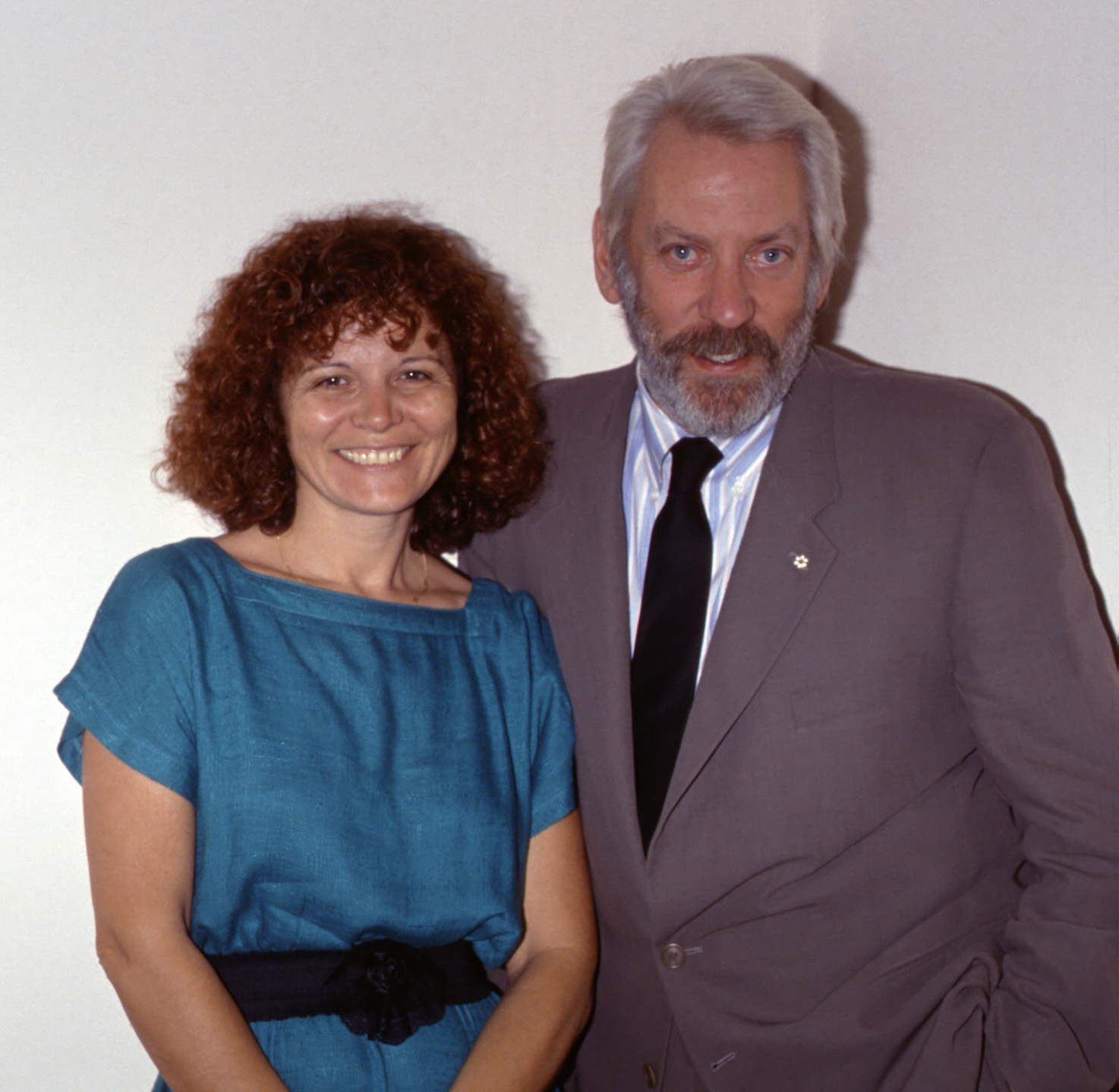
Donald Sutherland 1989
DONALD SUTHERLAND
When I interviewed him about Without Limits in 1998, he talked about feminism and sexual abuse.
“I remember Jane Fonda, when she went to her first consciousness-raising meeting, and it was astounding to see her joy when she came back home, her relief at finding a group of women who had suddenly realized that the things that they thought that they had only experienced themselves they’d all experienced. You know, about 25% of the women in this country have been molested by an uncle or a father or a brother, and nobody ever brought it out, because the mindset was not there, it was inconceivable to think that a father would molest a child. There’s a different mindset in America now, which is correct. It was stupid and incorrect the way we behaved before and it will be changed, but it has to do with power and it works on both sides.”
EMMA THOMPSON
We met about Remains of the Day in 1993, my interview was published in Venice, and in 1994 we had a one-on-one for Junior, a comedy with Arnold Schwarzenegger. I wrote it in Italian for Gioia.
“I always see myself in a continuum, in some sort of historical perspective, so I’m very grateful, not only to the feminist movement of the 60s and 70s, but also to the women who won me the right to vote at the beginning of the century and fought for my education. I was able to go to university and get a degree, so nobody is going to assume that I’m an idiot just because I’m an actress. I’m a female and what happens to women in England is still fairly disgraceful, Cambridge is still very male-dominated, so, as a young woman growing up, you must never forget those amazing women in the early days who actually suffered, sacrificed everything, including sometimes the opportunity to be with their children, to give us the power that we have today.”
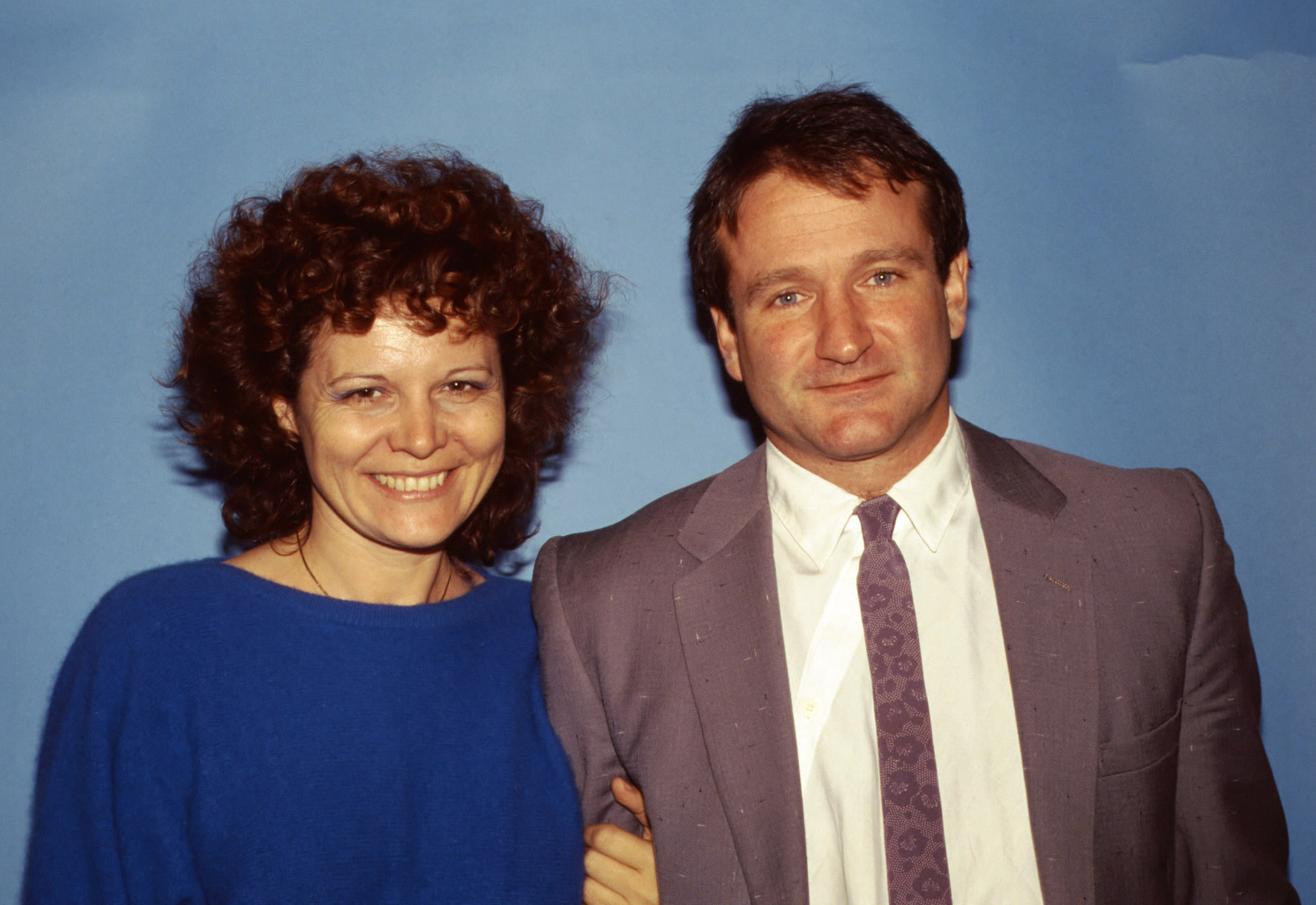
Robin Williams 1987
ROBIN WILLIAMS
I met him many times, for Awakenings by Penny Marshall, Toys by Barry Levinson, Jack by Francis Coppola, The Birdcage, What Dreams May Come, etc. It’s tragic that he took his own life. Here’s a quote from a 1990 interview I wrote for Marie Claire.
“It was great to move to the Bay area in the late sixties, it was a crazy time, living there made me what I am. My father was surprised by my choice of becoming a comedian, but didn’t stand in my way, he just thought I should have a back-up profession. My mother was out working all day and I really wanted to make her laugh when she came home. She was charming and very funny in her own way, she gave me that outrageous sense of humor; my father had a different kind of humor, very dry, he gave me the subdued side. The two of them were like the ying and yang.”
KATE WINSLET
My first interview with her was a on-one-one in 1997 about Sense and Sensibility, directed by Ang Lee from the Jane Austen novel.
“A lot of things are the same, just in terms of emotions and the way that we are, but times change, dress changes, and society changes. The way that women are accepted now and what we stand for is very different. For a while women were fighting for their integrity, to be respected as equal to men and be recognized as so; but now I feel it’s absolutely the way it is. I would have gone mad if I had existed then, because women in the upper classes were just expected to have a nice time, to sew, to read and to walk, and if they were from a working class family, to keep the house. And they were expected to breed, they were to bring children into the family. So they were to be brought up respectably and married off, into money, and that was the way that it was, it was always about aiming for that respectability and wealth. And I find that desperately frustrating.”
JAMES WOODS
We spoke at Cesare Bonazza’s photography studio in 1995 before a cover session for Venice about Nixon directed by Oliver Stone and Casino by Martin Scorsese.
“I don’t believe Presidents are corrupt by definition. For example, Jimmy Carter was truly an honorable man, and he was an incredibly ineffective President, which by the way raises an even more intriguing problem, because I don’t know if those two things go together. I don’t believe that the political environment now in the White House is more concerned with honor and integrity; Bill Clinton is just a Southern politician, a Wall Street man, and not what he pretended to be.”